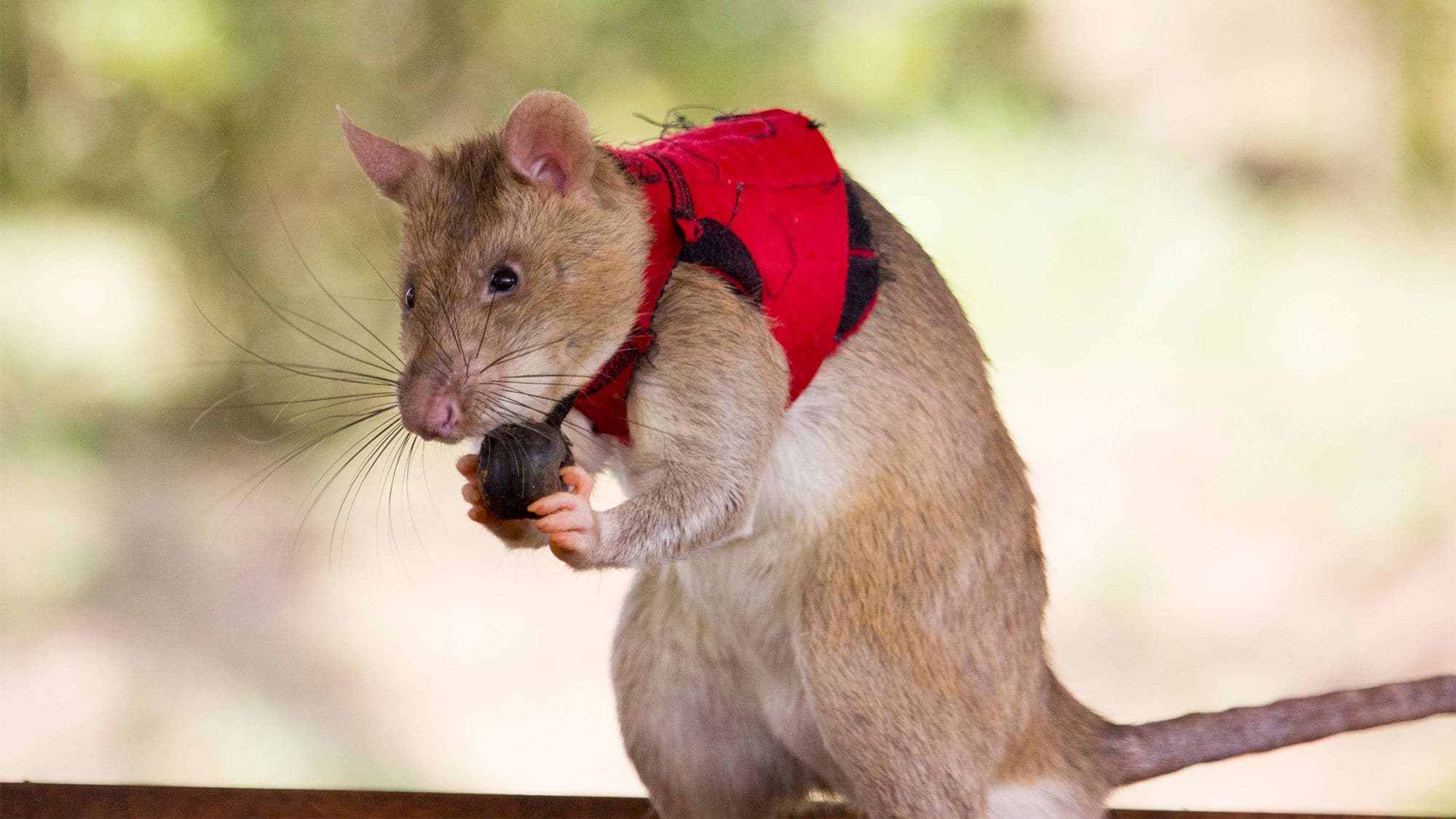
Rats could be latest weapon against wildlife trafficking; here's how
What's the story
In another case of animal ingenuity, African giant pouched rats have proven capable of detecting smuggled wildlife products such as pangolin scales, rhino horns, elephant tusks, and hardwood. The giant rats are being trained by scientists at Apopo, a Belgian-founded non-governmental organization (NGO) based in Tanzania, to sniff out smuggled wildlife products. This is part of a wider effort to combat the illegal wildlife trade, which Interpol estimates is worth up to $20 billion annually.
Training details
Rats' training and performance in detecting illegal products
The training involved eight rats that were taught to identify contraband hidden among common items like peanuts and washing powder. The rats were rewarded with food pellets every time they held their nose over samples of illegal products. In simulations, these rodents, wearing tiny red vests, used their front paws to alert handlers when they detected contraband.
Smell retention
Rats' memory for smells rivals that of sniffer dogs
Published in Frontiers in Conservation Science, the study revealed that the rats could remember smells as long as sniffer dogs. They could accurately detect pangolin scales, wood and rhino horn even after eight months without exposure. However, their results for elephant ivory were less accurate as it was stored with rhino horn.
Field test
Real-world simulation tests rats' detection skills
In 2023, a real-world simulation was conducted at the port of Dar es Salaam, Tanzania's commercial capital. The trained rats successfully found 85% of planted illegal wildlife samples through shipping container vents. Training a detection rat costs around $8,000, whereas training a canine can cost up to $30,000. Airport scanners can cost anywhere from $30,000 to $1.2 million.